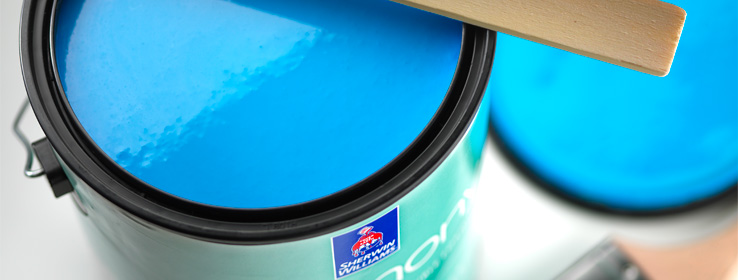To your customers, painting is a major investment. In time. In money. In labor. You know it pays to spend a little extra to get a high-quality, long-lasting finish.
But what does "quality" mean? And what benefits do high-quality paints provide?
Bottom line: Better ingredients mean better performance. A high-quality coating starts with high-quality ingredients that allow paint to apply more easily, look better and last longer. Here are the four key ingredients that affect the quality of paint:
Pigment
There are two different types of pigment that go into a can of paint. First are "prime" pigments.
These provide color and hide. Second are low-cost "extender" pigments. By comparison, they add bulk to the product, but have little value as it relates to color.
Higher-quality paints have more of the all-important, yet more expensive prime pigments – all the things that in the end give you easier application as well as better durability and color retention.
Binders
There are a variety of binders used in today's paints. Latex paints contain either 100 percent acrylic, styrene-acrylic, or vinyl acrylic binders. Oil paints typically contain linseed oil, soya oil, or modified oils called alkyds.
The type, quality and amount of binder affect everything from stain resistance and gloss to adhesion and crack resistance. Higher quality binders, found in higher quality paints, adhere to surfaces better and provide enhanced film integrity and longer lasting performance. This makes them more resistant to cracking, blistering and peeling.
Liquids
The liquid provides no added performance benefits. It's simply the "carrier" that allows you to get the paint from the can to the surface.
As you might guess, top quality paints have a greater ratio of solids (pigment and binders) to liquids, while cheaper paints are more "watered down" with liquid.
Additives
Additives are ingredients that give a paint a specific benefit that it might not otherwise have. Common additives in higher-end paints include:
Rheology modifiers – provide better hide through flow and leveling of the coating.
Mildewcides – keep mildew in check.
Dispersing agents – keep pigment evenly distributed.
Preservatives – prevent spoilage.
Additives do increase the cost of the product while providing significant added benefits.
We stand behind our paint quality, and so does third-party testing and research.





